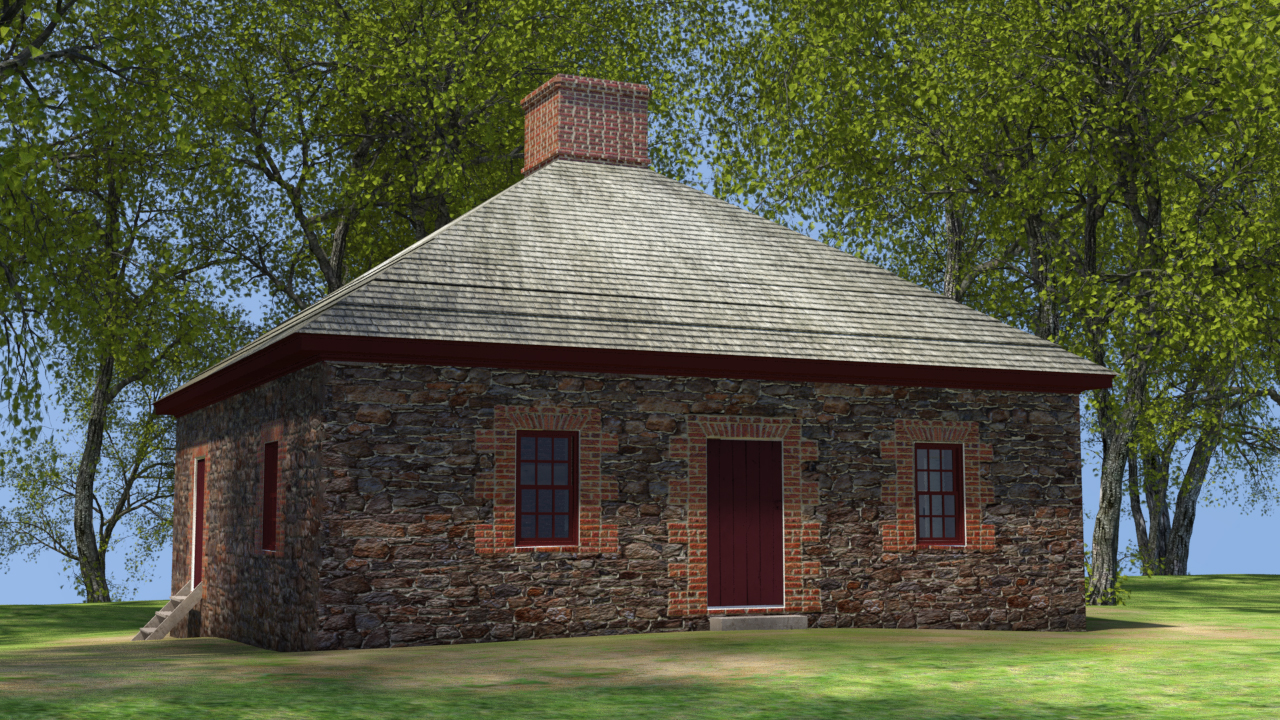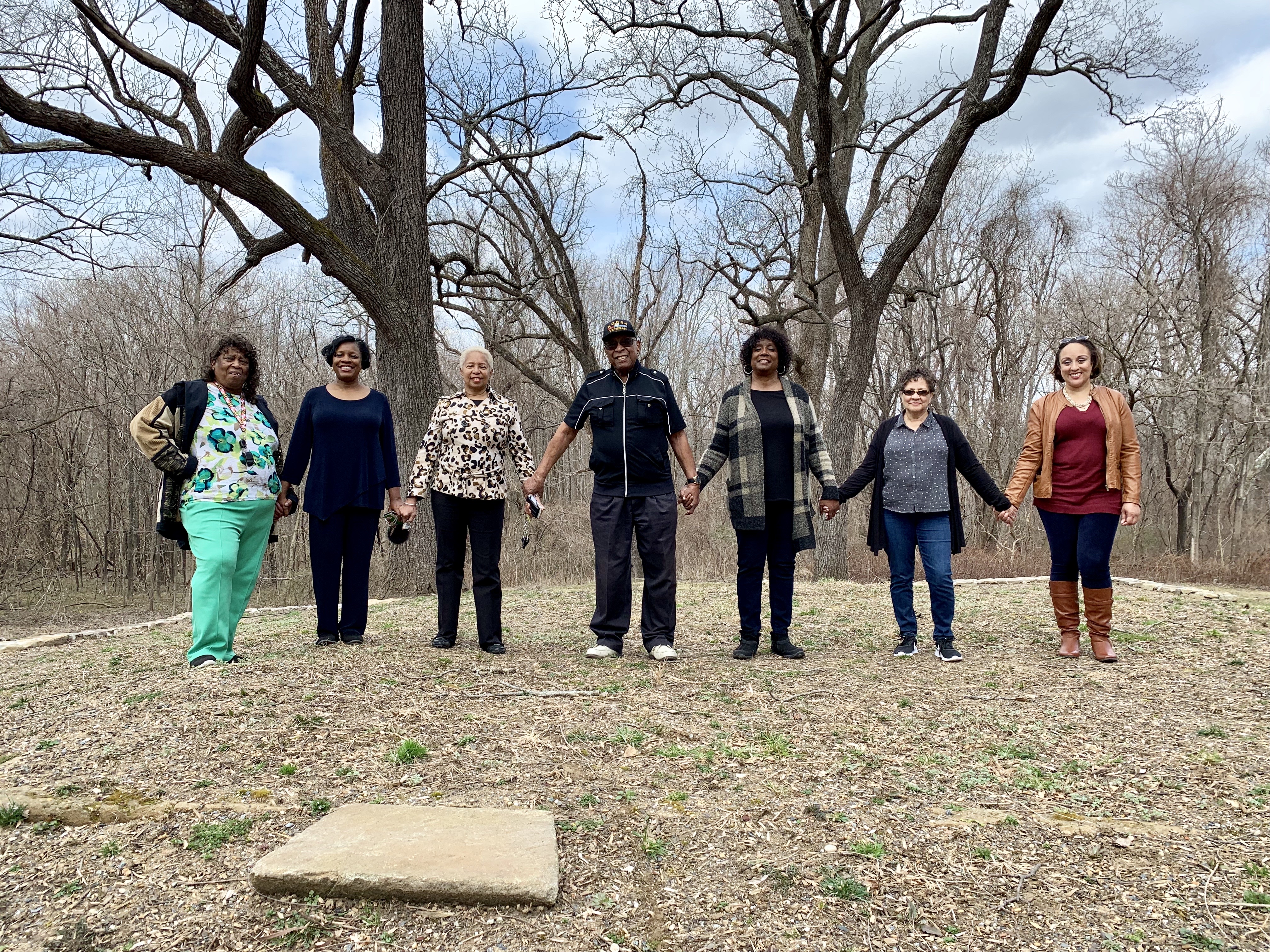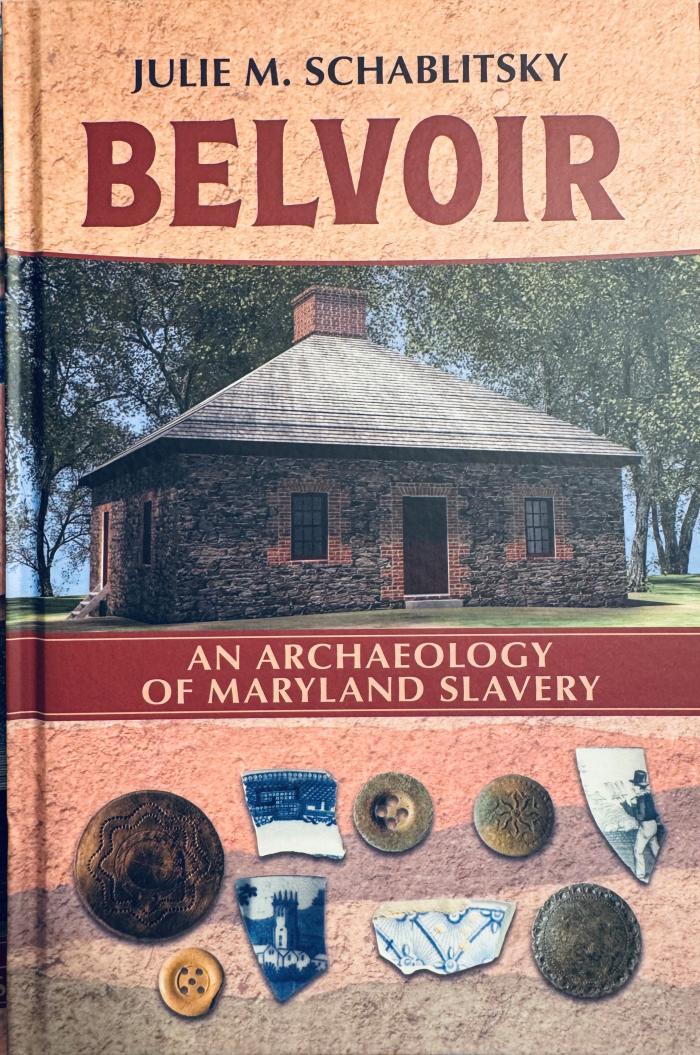Archaeologist Authors ‘Belvoir,’ the Story of a Former Annapolis-Area Plantation
Julie Schablitsky Details the Work that Launched Later Investigations into Harriet Tubman’s Life
Julie Schablitsky is well-known for her work discovering where famed abolitionist Harriet Tubman lived during some of her teenage years—at the Dorchester County home of her father, Ben Ross. But well before her archaeology career took her down the path of piecing together the life of the Underground Railroad’s “conductor,” Schablitsky found herself at an Anne Arundel County, Maryland historic site that is the namesake and focus of her new book, Belvoir.
Belvoir is a former tobacco plantation located in Crownsville, Maryland that dates back to the 1730s. It was the home of the grandmother of Francis Scott Key, and is said to have hosted French commander Comte de Rochambeau as he and 4,500 troops made their way to Yorktown in 1781 to fight the final battle of the Revolutionary War alongside George Washington.
It was actually Rochambeau that brought Schablitsky—an adjunct assistant professor in the Department of Anthropology and the Chief Archaeologist and Director of the Maryland Department of Transportation’s Office of Cultural Resources—to Belvoir in the first place, on a quest to find evidence of his campsite in 2014. The campsite was never found, but the foundation of a 32-by-32 foot stone building believed to have housed enslaved individuals was discovered.

“Instead of finding France, we found Africa. We ended up finding this other story that no one really talked about or acknowledged,” Schablitsky said. “Belvoir really led us to doing a lot of the Harriet Tubman work, because Belvoir showed us that buttons have stories. Pipes have stories. Little broken pieces of bone in the ground can tell us what people who lived there ate, and what they caught. It made me realize how important archaeology is to trying to discover these stories, because they’re not in our history books—they’re in the ground.”
In Belvoir, Schablitsky shares various findings from her time digging around that stone house, organizing the discoveries into different book chapters according to their use to help paint a picture of what life was like for enslaved people living in Maryland. She also weaves in the thoughts of the individuals who have been identified as descendants of the enslaved people, many of whom were previously unaware that Belvoir was part of their heritage.
“Our family is elated to learn about the legacy of Cinderella and Abraham Brogden as well as the archaeological finds and book published by Dr. Julie Schablitsky,” said Pamela Brogden, a Hanover, Md. resident descended from Abraham Brogden, a freedman who married and tried to flee to Baltimore with a woman, Cinderella, who was enslaved at Belvoir. “At a time when Black History is under attack, it is imperative that our legacy be documented and passed on to future generations to uphold.”
Sharing the stories of the enslaved individuals who lived at Belvoir was just part of the reason why Schablitsky felt called to write Belvoir.
“I wanted to write a book that anyone in the public can pick up and learn about archaeology, and about the people who lived at Belvoir and who were enslaved there,” Schablitsky said. “It can be really hard for people of African ancestry to look back at their family lineage and know that people they are related to were enslaved, and so with this book, I hope to inspire people to think about their family and their past, and show that, through this group of descendants that we worked with, there should be nothing but pride in your ancestors and their ability to withstand and survive slavery.”

Belvoir also sheds light on possible ways in which the enslaved individuals may have tried to demonstrate resistance in their daily lives, such as by breaking and hiding tools.
“In a time when the history of slavery in America is being denied, covered up and shamefully erased, it is important for books like this to be published,” said Wanda Watts, a descendant of two women from the Burley family, Ann and Ellen, who were enslaved at Belvoir. “It is not to shame anyone or point fingers and appoint blame, but to give an accurate account of the lives of people who were unwillingly brought to these shores to build and maintain the lives of their enslavers.”
The book also makes mention of the discovery of a cemetery for enslaved people, made possible not by digging, but by Bay Area Recovery Canines—dogs trained to detect the scent of human decomposition—in 2018.
“I hope that archaeologists who read this book take away the importance of always including descendants in their work, and I hope that all people who read this book see that places of enslavement should be treated with reverence and respect,” Schablitsky said. “I hope that they also see these places as ones for reflection and healing, particularly for descendants and Black community members who may want to bring their children; the people who lived here were people of strength and power, and who, because of their sacrifices, are the reason why they are here today.”
Shelley P. Evans, another descendant of the Burley family, believes her daughter Erica Evans said it best upon their visit to Belvoir during Maryland's Emancipation Celebration in October 2014: “Today I am in Crownsville, Maryland, walking the grounds where my ancestors once lived as slaves. There aren't enough words to fully express what I'm feeling. Humble. Grateful. Connected.”
Published on Mon, Oct 20, 2025 - 11:07AM




